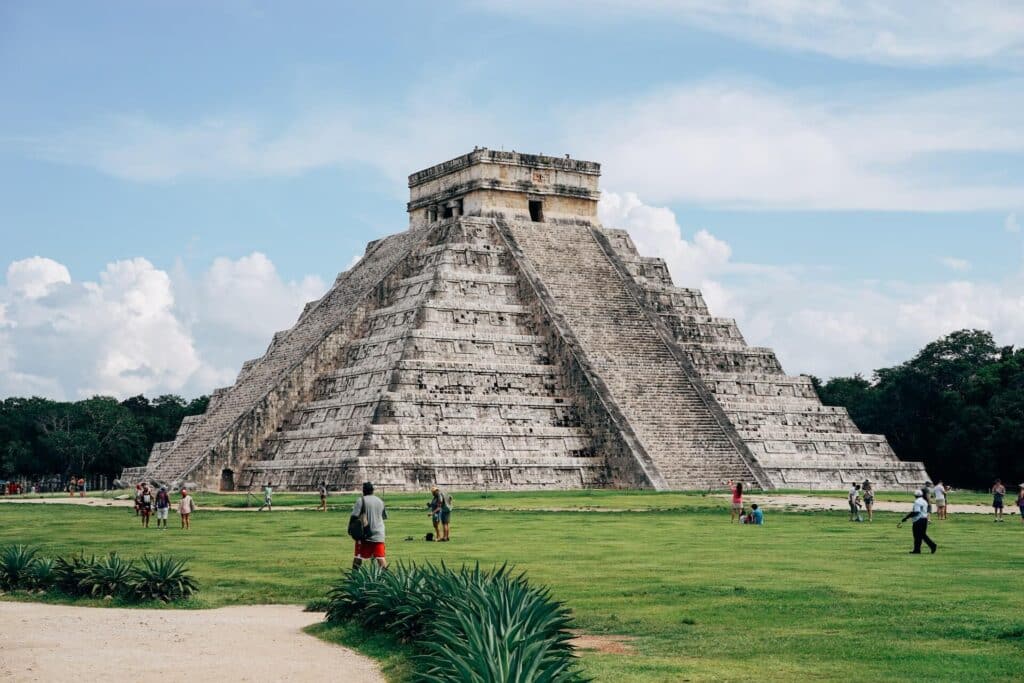Can a foreigner buy property in Mexico?
Mexico’s regulations have been relaxed, allowing foreigners to own property in the country, including residential homes, condos, and land. Owning property within the restricted zones, which include areas within 50 kilometers (31 miles) of the coastline and 100 kilometers (62 miles) of the borders, is subject to some restrictions. Foreigners can acquire property in these restricted zones through a trust known as a fideicomiso or by forming a Mexican corporation.
The fideicomiso is a legal document that allows foreigners to hold property in restricted zones via a Mexican bank acting as trustees. The bank holds the property title for the foreign buyer, who has full ownership rights and can sell, lease, or pass the property to heirs.
Foreigners should work with a qualified real estate agent or attorney familiar with Mexican real estate laws and can guide them through the buying process. They can help with due diligence, property title verification, and compliance with legal requirements. Understanding the local real estate market, property values, and potential tax implications is also good.
Mexico allows foreigners to buy property in Mexico and rent it out to generate an income. Many property owners list their houses on Airbnb in Mexico to find short and long-term guests.
Buy property in Mexico in 6 easy steps
Buying property in Mexico as a foreigner is a relatively straightforward process. To help you navigate the necessary steps, we’ve outlined the key considerations below:
Step 1: Make an offer and negotiate the price
When purchasing property in Mexico, it is customary to verbally negotiate the terms and price with the seller or your real estate agent. This is the first step in buying property in Mexico.
Step 2: Sign the sales contract and submit a deposit
To formalize the agreement, you will need to sign a sales contract known as promesa de compraventa, convenio de compraventa, or contrato de compraventa, depending on local customs. This contract outlines the terms, conditions, and price of the sale, including any special payment arrangements and penalties for default. Typically, 5% to 10% of the sales price deposit is required to secure the property.
Step 3: Initiate the fideicomiso
If the property is located within the restricted zone, you must create a fideicomiso. Alternatively, you can transfer the existing fideicomiso from the previous owner into your name. This process ensures compliance with Mexican law and the 50-year renewable term of the fideicomiso.
Step 4: Obtain approval from the Foreign Secretary’s Office
As part of the property purchase process, you must provide a signed statement acknowledging that you accept Mexican property law as the governing jurisdiction for your transaction.
Step 5: Conduct title review and official valuation
A notary will oversee the title review and arrange for the official valuation, known as avalúo. The valuation determines the property’s value for taxation purposes, preventing underreporting of the sales price.
Step 6: Sign the escritura
At the notary office, you will sign the escritura, which serves as the official title to the property. This step also involves making the final payment to complete the transaction.
Step 7: Settle taxes and fees and register the property
The notary will handle the payment of taxes, collection of prices, and initiation of property registration. You will be required to provide the necessary funds for these transactions. Within three months, the property will be officially registered in the property registry.
Step 8: Account for closing costs
Closing costs typically amount to approximately 5% of the purchase price. This includes a 1.5% notary fee, a 2% transfer tax, and other miscellaneous expenses such as fideicomiso setup fees. If you obtain a mortgage, the closing costs may be higher.

Mexico real estate prices
Real estate prices in Mexico vary depending on the location, property type, and market conditions. The table below shows the average costs per square meter for Mexico’s seven most popular cities/areas.
| City | Average price per m² |
|---|---|
| Cancun | to |
| Guadalajara | to |
| Mexico City | to |
| Monterrey | to |
| Playa del Carmen | to |
| Puerto Vallarta | to |
| Tulum | to |
Costs, fees, and taxes in Mexican real estate
There are several costs, fees, and taxes when buying real estate in Mexico. Here are some typical costs associated with the property-buying process:
- Closing costs:
- Closing costs typically include various fees associated with finalizing the purchase transaction. These costs may consist of notary fees, appraisal fees, transfer taxes, and registration fees.
- In Mexico, closing costs can range from 5% to 10% of the property’s purchase price.
- Notary fees:
- Notary fees are charged for the services provided by a notary public, who plays a crucial role in property transactions in Mexico.
- Notary fees are typically a percentage of the property’s value, ranging from 0.5% to 2%.
- Transfer taxes:
- A transfer tax called the Impuesto sobre la Transferencia de Bienes y Servicios (ITBIS) or Value Added Tax (VAT) may apply when buying property in Mexico.
- The tax rate is generally 16% of the property’s value, but it can vary depending on the location and property type.
- Registration fees:
- Registering the property with the Public Property Registry incurs registration fees. These fees are usually calculated as a percentage of the property’s value and may vary by state or municipality.
- Financing costs:
- If you require financing to purchase the property, there may be additional costs such as loan origination fees, appraisal fees, and interest payments.
- Property taxes:
- Once you own the property, you’ll be responsible for paying annual property taxes known as Predial.
- The amount is based on the property’s value and can vary depending on the municipality.
It’s important to note that specific costs, fees, and taxes will vary depending on where you live and your circumstances. You should consult a local real estate professional, attorney, or accountant who can provide detailed information about the costs of buying real estate in Mexico and ensure compliance with local regulations.
Frequently Asked Questions (FAQs)
Can foreigners legally own property in Mexico?
Foreigners can own residential and commercial property in Mexico. The restricted zones, usually near coastlines and international borders, prohibit property ownership. A fideicomiso (bank trust) or Mexican corporation allows foreigners to own property in these zones.
What is a fideicomiso (bank trust), and how does it work?
Mexican fideicomisos allow foreigners to buy property in restricted zones—Mexican bank trustees for the foreign buyer. The buyer can sell, rent, or leave the property to heirs while the bank holds the title in trust. The 50-year fideicomiso can be transferred or renewed.
Are there any additional costs and taxes associated with buying property in Mexico?
Mexico property purchases incur additional fees and taxes. Common costs:
– Acquisition Tax (Impuesto sobre Adquisición de Bienes Inmuebles): The buyer typically pays this tax based on the property’s value.
– Notary Fees: Notary fees are charged for the preparation and execution of the property transfer documents. The fees vary based on the property’s value and location.
– Closing Costs: These include administrative fees, appraisal fees, title search fees, and other expenses associated with the property transfer process.
– Annual Property Taxes: Property owners in Mexico must pay annual taxes based on the property’s assessed value.








2 Responses
I’m selling a timeshare to a mexican attorney office, is there a new tax that just happened in Sept 2024?
Hi! There hasn’t been any significant new tax introduced specifically in Mexico for timeshare sales in September 2024. However, it’s always a good idea to consult a tax advisor or attorney in Mexico to ensure you’re compliant with current tax laws and any recent updates.